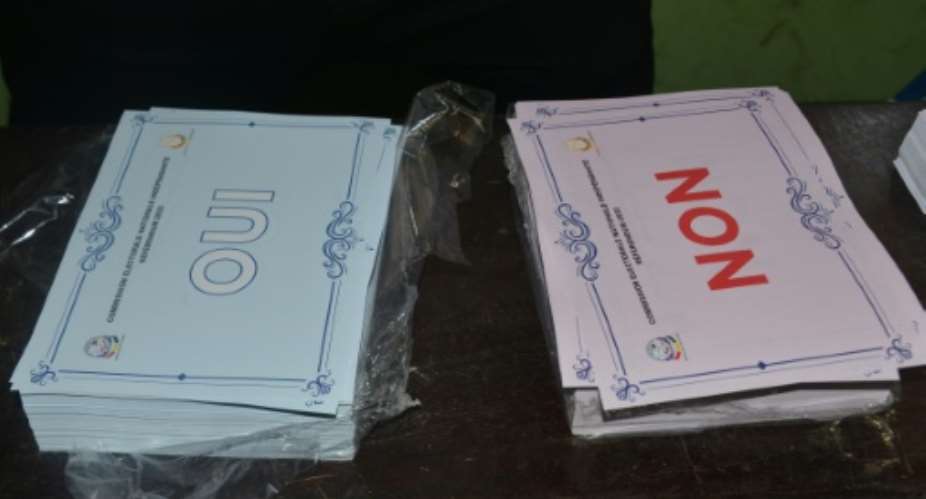Guinea's constitutional court ratified the result of the West African state's contested constitutional referendum on Friday, recording a slightly reduced majority for the vote to approve the reforms than previously reported.
Changing the constitution has proved a hugely controversial proposal in Guinea, spurring mass demonstrations in which at last 32 people have been killed, according to an AFP tally.
Observers also recorded several deaths in election-related unrest on and around polling day, on March 22.
The government argues that the new constitution will codify progressive changes -- especially for women -- but critics fear it is a ploy for extending President Alpha Conde's time in office.
Last week, Guinea's Independent National Electoral Commission announced that 91.59 percent of ballots were cast in favour of adopting the new constitution, while 8.41 percent were against.
But in a statement broadcast on public radio on Friday, the constitutional court said that 89.76 percent voted in favour of changing the constitution, while 10.24 percent voted against.
Cheick Fantamady Conde, the court's secretary general, told AFP the discrepancy was due to "irregularities and malfunctions noted by the observation missions" conducted by court officials, without offering further details.
Guinea's embattled political opposition, which boycotted the referendum, has rejected the vote count, with former prime minister and opposition leader Sidya Toure referring to "Soviet-style results".
The United States and France, the Guinea's former colonial ruler, have also both cast doubt the credibility of the referendum, and a concurrent parliamentary election.
The new constitution will limit presidential terms to two but extend the length of the term to six years.
But the opposition fears it would also reset presidential terms to zero. This would potentially enable Conde, 82, to govern for another 12 years when his second and final term ends this year.
An opposition figure jailed under former hardline regimes, Conde made history in 2010 as the first democratically-elected president in a country with a history of military coups and turmoil.
Voters returned him to power in 2015 for his second and final five-year term under the current constitution, but critics say he has become increasingly authoritarian.





 Chairman Kingsley Owusu Brobbey calls for Privatization of Electricity
Chairman Kingsley Owusu Brobbey calls for Privatization of Electricity
 Train accident: Four more grabbed and remanded
Train accident: Four more grabbed and remanded
 Gov't to consolidate cash waterfall revenue collection accounts
Gov't to consolidate cash waterfall revenue collection accounts
 Gov't to settle lump sum for retired teachers by April 27
Gov't to settle lump sum for retired teachers by April 27
 Former PPA CEO granted GH₵4million bail
Former PPA CEO granted GH₵4million bail
 Dumsor: The darkness has exposed you; you’ll go down as the worst in Ghana’s his...
Dumsor: The darkness has exposed you; you’ll go down as the worst in Ghana’s his...
 Dumsor: The ‘incompetent’ person provided a timetable whiles those who came to s...
Dumsor: The ‘incompetent’ person provided a timetable whiles those who came to s...
 Defend, ensure NPP’s good works are ‘sold’ and highlight the ‘bad’ state of the ...
Defend, ensure NPP’s good works are ‘sold’ and highlight the ‘bad’ state of the ...
 Bawumia will rank high ahead of Mahama in any anti-corruption test — Salam Musta...
Bawumia will rank high ahead of Mahama in any anti-corruption test — Salam Musta...
 NPP trying to bribe us but we‘ll not trade our integrity on the altar of corrupt...
NPP trying to bribe us but we‘ll not trade our integrity on the altar of corrupt...
